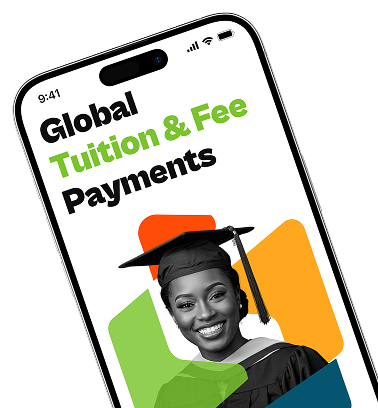The internet is full of tempting travel abroad packages. However, if you have not decided to relocate overseas, some travel ads leave you dreaming of vacations abroad.
Dishonest people and scammers have devised smart ways to take your money during the travel abroad process or when you want to make cross-border payments.
Pay4Me will help you discover hidden fees and scammers who pose as genuine travel agents in this guide.
READ: How to Find Accommodation in the UK From Nigeria
Common Travel Scams
We have listed some of the universal travel scams:
· The taxi overcharge
A driver may tell you that his meter broke, while others may want to charge you more. You can avoid such a situation when you know the ride cost if you check online or ask hotel staff or locals. If a driver tries to start a fare negotiation, you should let him know the correct rate. Avoid entering an unlicensed cab, no matter how tempting the fare may seem to you.
· Free rosemary/bracelets/anything
Be careful when someone places a hat on your head or a bracelet on your wrist, including offering you a sprig of rosemary. The person may demand that you make payments for the gift.
· The spill on your clothes
Some accidental spilling on your clothes could be challenging, especially if you have a date. Pickpockets often disguise stealing from you with such a trick.
· Motorbike scam
Be careful of the place you rent a motorbike to avoid making an additional payment or expensive repairs. Pay4Me recommends taking pictures of the motorbike before you leave with it.
· Your accommodation is "closed."
You must not accept from a cab driver that your accommodation is closed or overbooked. Don't accept to use another hotel or hostel, but the one you booked. Remember to rely on your Google map.
· The shell game
Do not play any card games with strangers. It might be an old travel scam we often see in movies. You may end up losing all your money.
· “Come in for tea and help me write a letter!”
In Arabic countries, this type of scam is common among the locals. Therefore, you should stay away from such situations.
· The flirtatious local
Don't be carried away by flirtatious local girls in bars or clubs. You may end up paying for drinks you cannot consume or make payments because they had their bills on your head.
· Your attraction is closed for lunch.
Be mindful of people telling you that an attraction has closed during your tour, and don't follow them to places you don't know.
· The ATM scam
You should not allow anyone to talk to you about the new ATM with no associated charges.
Always use indoor ATMs inside a bank and check the ATM for a card skimmer.
· Child or injured beggars
Be mindful of injured or child beggars that may approach you for money. Sometimes, the beggar's accomplice may watch where you keep your wallet.
· Fake Wi-Fi hub
Scam hackers may use free Wi-Fi to steal your data. So never you an unsecured network abroad, and consider using a VPN.
· Be Wary of Distractions
It would help if you were careful of scuffles, fights, or distractions because scammers, thieves, and pickpockets capture your attention with them to rob you.
Signs of a Travel Scam
- No specific details about the travel package: A travel company that offers you a cruise on a ship or lodge at a “five-star” resort without specific details( addresses) should be avoided.
- A "free" vacation, but you must pay: If you get an offer, you win a free holiday but still have to make payments.
- The only way to pay for your vacation rental is via cryptocurrency, wire transfer, or gift card: it’s almost impossible to get your money when you make such a payment.
- Pressure to make a quick decision: Scammers don’t want you to take your time during payment; they want to rush you.
- Premium vacation properties with super cheap prices: Do not fall for the below-market rent
3 Ways To Avoid Travel Scams
Do your research: You should double-check the hotels, travel agents, or rentals, with the words “scam,” “review,” or “complaint.” Read what people say about them in customer reviews.
Know what you want to sign or pay for: Check the cancellation and refund policies before you pay.
Avoid using wire transfers, gift cards, or cryptocurrency for payments: You should use these payment methods.
How To Shop for Travel
- Get recommendations from trusted sources.
- Consider using a travel app
- Use comparison websites and applications
- Ask about mandatory hotel “resort fees” and taxes
- Buy travel insurance from a licensed company.
How to Avoid the Bump and Grab
- Spread out all your valuables, and don't keep all your important documents in one place.
- Do not put a wallet or anything of value in either your front or back jean pocket.
- It would help if you opted for cross-body purses with zippers.
- Whenever you get bumped, immediately check yourself.
.
Final Thoughts
1) Follow your gut; if it doesn't feel right, then it probably isn't.
2) If you have realized you are in the middle of a tourist scam, don't let it play out, get out of there ASAP.
3) Scammers usually use guilt to prey on travellers
4) Don’t be afraid to say no
Pay4Me offers cross-border payment for Nigerian students, with the opportunity to make payments for SEVIS, WES, and tuition fees. So why not start today with this fantastic app from the Google play store or apple store?





